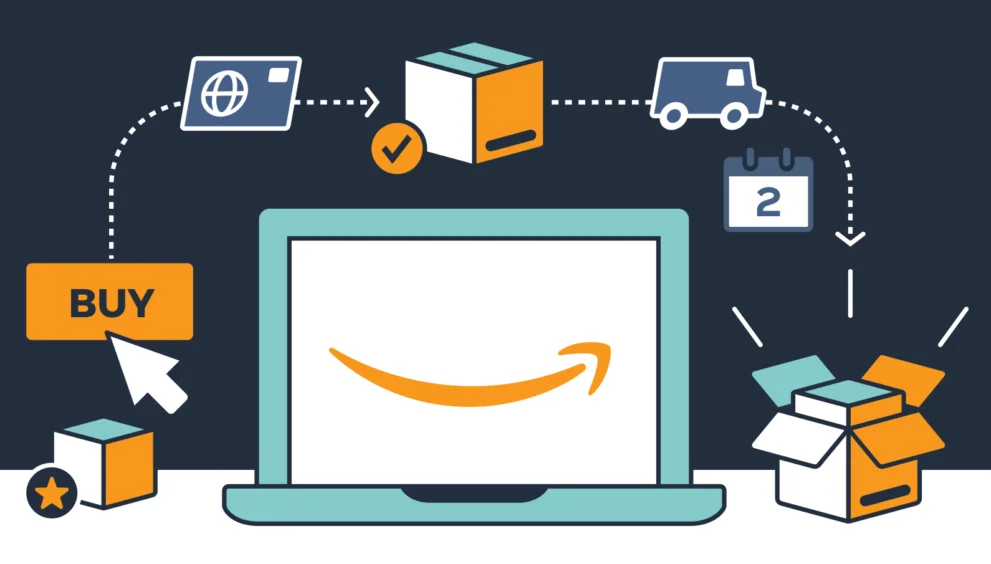Introduction to Amazon FBA Business
Embarking on a journey through the ever-evolving landscape of Amazon’s Fulfillment by Amazon (FBA) business, we’ll explore the roots, growth, and the current state of this dynamic e-commerce model.
1.1 Definition and Basics of Amazon FBA
Amazon FBA, a revolutionary business model, allows sellers to leverage Amazon’s extensive fulfillment network. Products are stored, picked, packed, and shipped by Amazon, easing the logistical burden on sellers.
1.2 The Evolution and Rise of FBA Business
From its inception, FBA has witnessed remarkable growth, transforming the way businesses operate on Amazon. Its rise is synonymous with the platform’s commitment to enhancing seller and customer experiences.
Key Components of Amazon FBA
Understanding the core elements of FBA is pivotal for sellers aiming to capitalize on its benefits and navigate potential challenges.
2.1 Fulfillment by Amazon (FBA) Explained
FBA entails outsourcing the warehousing and shipping aspects of the business Amazon. This allows sellers to focus on product sourcing, marketing, and customer engagement.
2.2 Seller Benefits and Drawbacks
While FBA offers streamlined operations and Prime eligibility, sellers must also consider factors like fees and potential loss of control over shipping processes.
Recent Growth and Expansion of Amazon FBA
FBA has played a significant role in the overall growth of e-commerce and has expanded its reach globally.
3.1 FBA’s Role in E-commerce Growth
The efficiency of FBA has contributed to the overall growth of the e-commerce industry, setting new standards for fast and reliable order fulfillment.
3.2 Global Expansion and Market Reach
Amazon FBA businesses have tapped into international markets, providing sellers with the opportunity to reach a broader audience and diversify their customer base.
Emerging Trends in Amazon FBA
As we delve into the present and future of Amazon FBA, notable trends emerge, shaping the trajectory of businesses operating under this model.
4.1 Technological Advancements in FBA Operations
Innovations such as robotics, artificial intelligence, and data analytics are optimizing FBA operations, reducing errors, and enhancing overall efficiency.
4.2 Sustainable and Eco-Friendly Practices in FBA
FBA businesses are increasingly adopting sustainable practices, responding to consumer demands for eco-friendly products and packaging.
The Influence of Customer Behavior on FBA Trends
Understanding customer behavior is pivotal in adapting FBA strategies to meet evolving expectations.
5.1 Shifts in Customer Expectations
Customers now demand faster shipping, eco-conscious practices, and a seamless shopping experience, influencing how FBA businesses operate.
5.2 Personalization and Customer-Centric FBA Practices
The trend towards personalization is transforming FBA strategies, with businesses focusing on tailoring experiences to individual customer preferences.
Challenges and Innovations in Amazon FBA
While FBA offers numerous advantages, sellers must navigate challenges and embrace innovations to stay competitive.
6.1 Addressing Common Challenges in FBA
Challenges such as inventory management, rising fees, and increased competition require strategic solutions for sustained success.
6.2 Innovations and Solutions in FBA Operations
From advanced inventory forecasting tools to order management systems, innovations are helping FBA businesses overcome challenges and thrive.
Strategies for Success in Amazon FBA Business
Success in FBA requires a strategic approach, including optimizing product listings and leveraging data-driven insights.
7.1 Optimizing Product Listings for FBA
Crafting compelling and informative product listings is essential for attracting and retaining customers in the competitive FBA landscape.
7.2 Leveraging Analytics and Data for Informed Decisions
Utilizing analytics tools helps FBA businesses understand customer behavior, optimize inventory, and make informed decisions for growth.
Impact of External Factors on Amazon FBA
External factors, from economic influences to regulatory changes, can significantly impact the operations of FBA businesses.
8.1 Economic Influences on FBA Businesses
Global economic shifts, including currency fluctuations and market trends, can affect the cost and demand for FBA products.
8.2 Regulatory Changes and FBA Adaptations
Changes in regulations, especially related to international trade, can necessitate adjustments in FBA operations to remain compliant.
The Future Outlook of Amazon FBA Business
Anticipating future trends and developments is crucial for FBA businesses to stay ahead in this dynamic e-commerce landscape.
9.1 Anticipated Trends and Developments
Predictions include further integration of AI, expansion into emerging markets, and an increased focus on sustainability in FBA practices.
9.2 FBA’s Potential Evolution in the Coming Years
The evolution of FBA might involve more customized fulfillment options, enhanced automation, and a continued emphasis on customer-centric practices.
Conclusion: Navigating the Dynamic Landscape of Amazon FBA
In conclusion, Amazon FBA has evolved from a convenient fulfillment option to a dynamic business model shaping the future of e-commerce. Sellers must adapt to technological shifts, embrace sustainable practices, and prioritize customer satisfaction to thrive in this ever-changing landscape.
FAQs About Emerging Trends in Amazon FBA
Let’s address some common questions that may arise for sellers navigating the evolving trends in Amazon FBA.
11.1 How has technology impacted the operations of Amazon FBA businesses?
Technology has significantly optimized FBA operations, with innovations like robotics and AI enhancing efficiency and reducing errors.
11.2 Are there specific challenges associated with global expansion in Amazon FBA?
Global expansion in FBA introduces challenges such as customs regulations, shipping complexities, and market adaptation that sellers must navigate.
11.3 What sustainable practices are FBA businesses adopting?
FBA businesses are adopting eco-friendly packaging, reducing carbon footprints, and sourcing sustainable materials to meet consumer demands for environmentally conscious products.
11.4 How can sellers adapt to changing customer behavior in the FBA model?
Adapting to changing customer behavior involves offering personalized experiences, faster shipping options, and aligning with eco-conscious values.
11.5 What innovations are revolutionizing the fulfillment process in Amazon FBA?
Innovations such as advanced inventory forecasting, order management systems, and automated warehouses are revolutionizing the fulfillment process in Amazon FBA.



